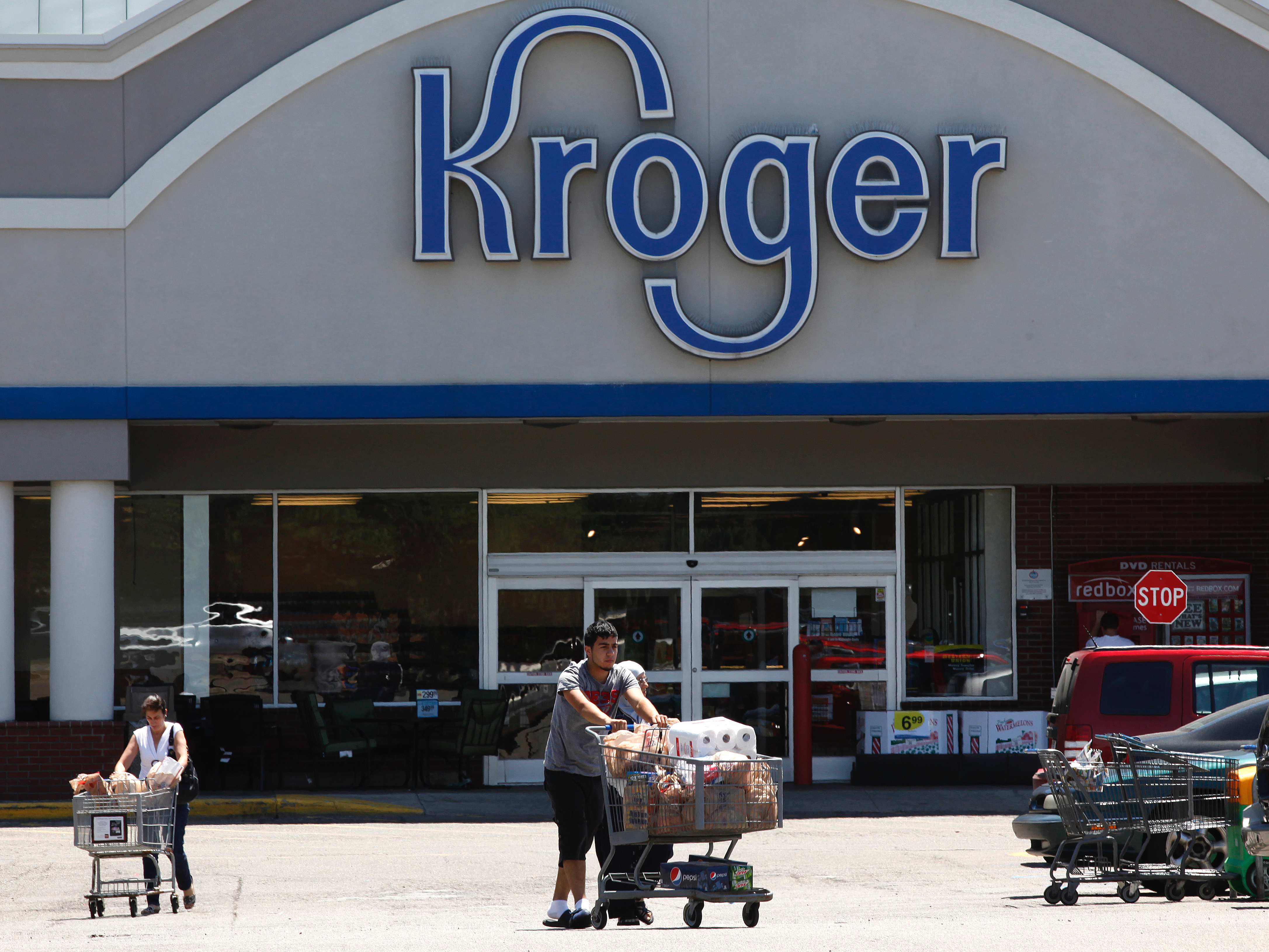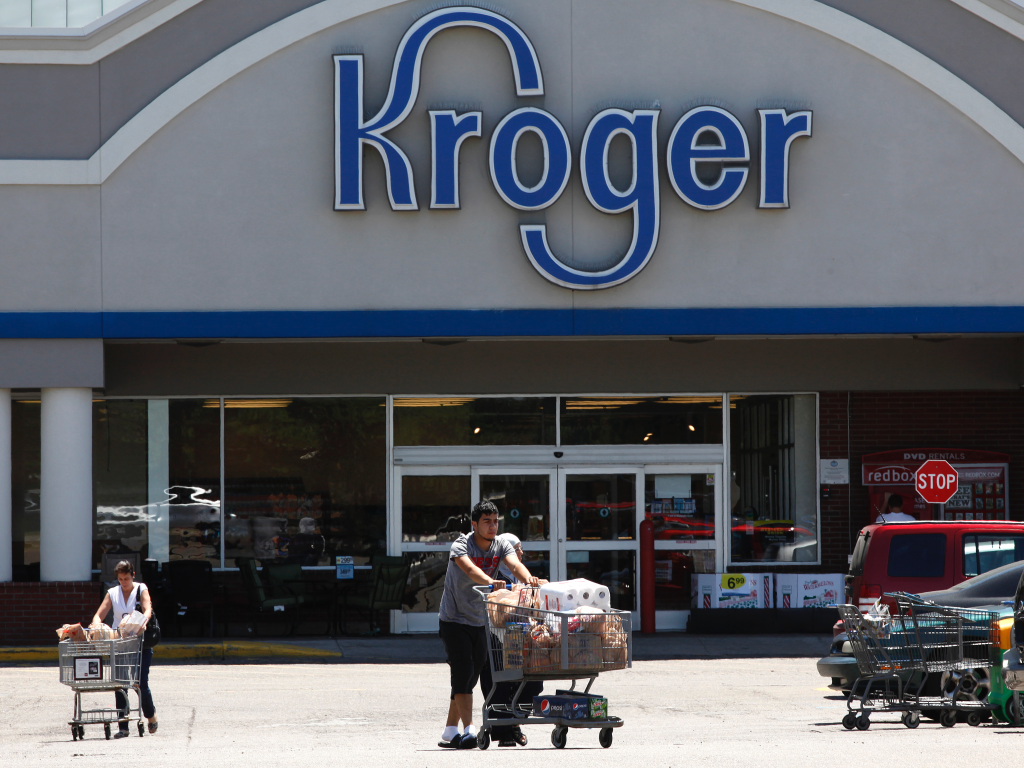
AP Photo/Paul Sancya
- Paul Constant is a writer at Civic Ventures and cohost of the "Pitchfork Economics" podcast.
- He talks about how Kroger closed stores during the pandemic to avoid giving workers 'hero pay.'
- Despite claiming closures were necessary, it just announced a $1 billion stock buyback program.
- See more stories on Insider's business page.
Back in February, I wrote about national grocery chain Kroger's announcement that it was closing low-performing stores in Seattle and Long Beach after the two cities passed laws requiring grocery stores to pay their frontline workers additional $4-per-hour "hero pay" during the pandemic.
"Giant corporations love to use splashy intimidation tactics like this to create fear-inducing headlines, which help to peel support away from worker protections," I wrote then, adding, "But make no mistake: Even though Kroger's press releases suggested that the grocery business relies on 'razor-thin' profit margins, Kroger has been making a ridiculous amount of money during the pandemic."
By making a big deal of closing stores that were likely set to be shuttered in any case, Kroger's message to politicians in states and cities around the country couldn't be much clearer. And if you read the comment thread on news stories about the Kroger closures from February, you'll find a vocal minority who believe Kroger is the victim.
"Money does not grow on trees. Business has to make a profit, otherwise it will close," one Seattle Times reader lectured. (Kroger repeatedly bragged about its record profits throughout the pandemic.)
Those commenters who are worried about poor Kroger's bottom line would do well to keep in mind a recent tweet from Pitchfork Economics host Nick Hanauer: "Whenever a corporation whines about raising wages, just Google '[name of company] stock buybacks' and you'll see where all their profits are really going."
The real victims of Kroger's closures
In this case, Hanauer's tip proves to be right on. Last month, Kroger announced a $1 billion stock buyback program.
The $1 billion in profits being funneled to shareholders could have been invested in Kroger's stores, customers, infrastructure, and labor force. It would have easily covered the "hero pay" at the shuttered stores, and the amount left over could have funded renovations and improvements to make those troubled stores more competitive in their dense urban neighborhoods.
Instead, it's enriching shareholders with no strings attached through a mechanism that feels less like competitive market-based capitalism and more like a reverse form of looting.
From the 1930s until the early days of the Reagan Administration, stock buybacks were illegal because they were a tool for market manipulation.
"The concern was that employees with inside knowledge of the company, usually executives, could trade around a buyback announcement," according to a report in the Harvard Law School Forum on Corporate Governance. And in fact that same report claims that nearly a third of all buyback schemes are "used by management to manipulate earnings per share (EPS), which could be used to inflate their own compensation metrics and hit quarterly guidance targets."
The impact of stock buybacks
The legalization of stock buybacks was part of a suite of trickle-down policies and laws designed to enrich the wealthiest 1% of all Americans, under the promise that that wealth would trickle down on everyone else.
Instead, buybacks have proven to be one of the most pivotal mechanisms to transfer wealth to the top 1% - and keep it there.
It's probably not a coincidence that in the 40 years or so that buybacks have been legal, income inequality has exploded and the average American worker's paychecks have fallen behind by nearly $10 an hour.
Anti-worker employers love to aggressively promote buybacks even as they blame workers for cost increases, as Chipotle did earlier this year, and they shamelessly pursue financial support from the government even though they've enacted a long-term program of stock buybacks that could instead have helped them weather difficult times, as the airlines have done.
Stock buybacks basically exist to leverage money away from workers and consumers and toward the already-wealthy investor class - many of whom are the same executives who voted to approve the buyback scheme in the first place.
Kroger may have referred to its employees as heroes during the pandemic, but if you follow the money, you can see where their priorities really lie.
